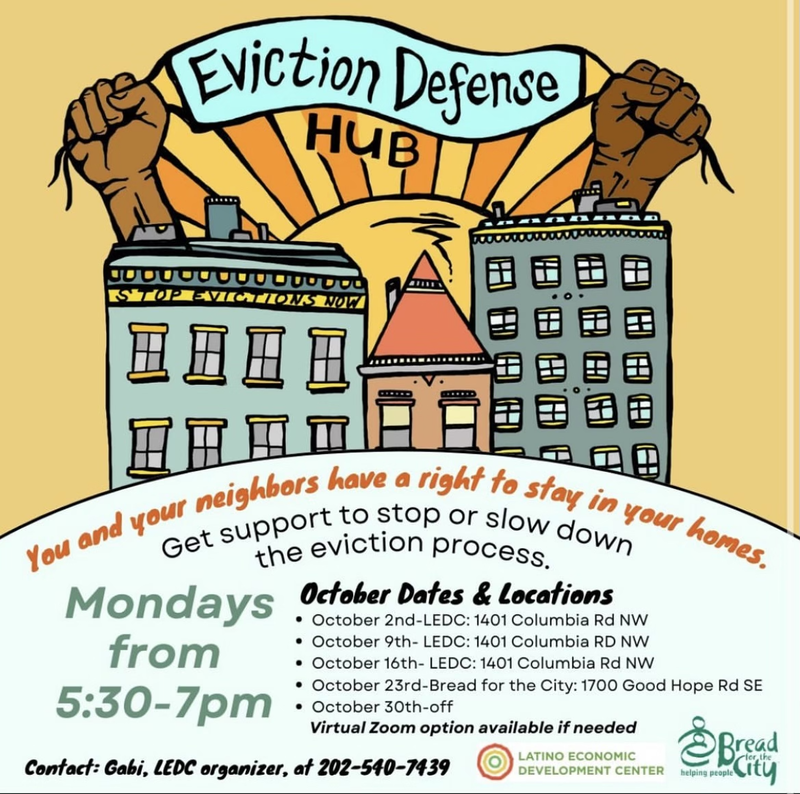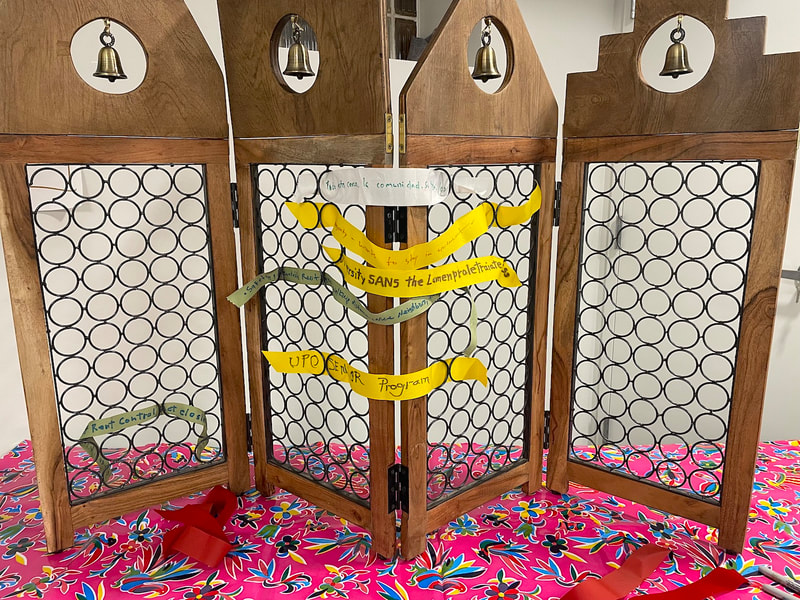|
Since April of 2022, Movement Matters has been working in collaboration with several legal service providers, social workers and community organizing groups in a joint project to keep DC tenants in their homes by fighting evictions. With the end of the COVID eviction moratorium and an absence of city funding and leadership on this issue, several thousand DC residents face eviction each month. In response to these conditions, Eviction Prevention in Communities (EPIC) has been building up a canvassing apparatus to ensure that tenants who are facing evictions know their options and are connected to long-term infrastructure to build tenant power. This month, EPIC launched the Eviction Defense Hub. This "Hub" is modeled after Silicon Valley DeBug's participatory defense project in the criminal courts, which allows individuals and communities to take back agency over their involvement with the overly bureaucratic and puzzling "criminal justice" system. Organizers from the Latino Economic Development Center's Tenant Organizing Team, Empower DC, DC Jobs with Justice, Bread for the City, and Movement Matters have adapted this tool to landlord-tenant court. Movement Matters has helped to ensure that Hub meetings incorporate cultural organizing and popular education to create stronger bonds among tenants and connect to the deeper values of anti-eviction work. We are also assisting community partners to develop strategic organizing responses to issues that surface during Hub meetings. The Hub comes at a time when government rental assistance and tenant protections are either being diminished or eliminated by the DC City Council and Mayor while landlord attempts to evict tenants are rising at alarming rates with no end in sight. Eviction Defense Hub weekly meetings build solidarity and mutual aid among tenants, encourage knowledge and skill sharing between those in the eviction process, and strengthen sustainable long-term collective power by surfacing deeper systemic issues and potential structural solutions. Connect with us for more information on MM's Technical Assistance and Action Coalitions work. Movement Matters is based in Washington, DC. We work regionally with various communities and with national partners. |
AuthorsMOVEMENT MATTERS Archives
October 2023
Categories
All
|


